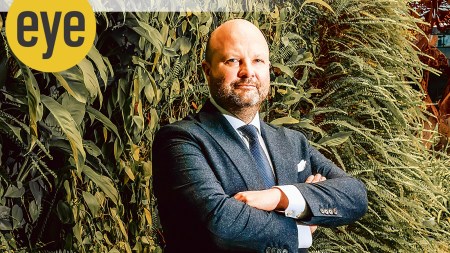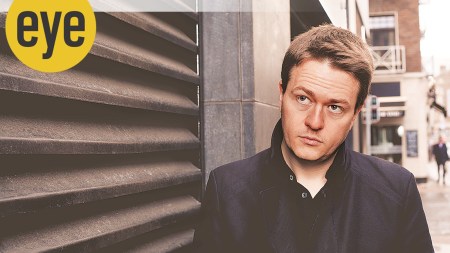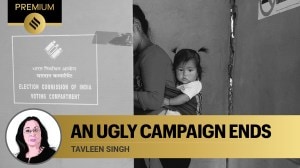- India
- International
Why a US web designer is challenging anti-discrimination laws over religious freedom
As the US Supreme Court picks up a challenge to a state law that bars businesses from discriminating against gay people, we look at the polarising clash between faith and LGBTQ rights in the US.
 The Supreme Court is hearing the case of a Christian graphic artist who objects to designing wedding websites for gay couples, that's the latest clash of religion and gay rights to land at the highest court. (AP Photo/Andrew Harnik)
The Supreme Court is hearing the case of a Christian graphic artist who objects to designing wedding websites for gay couples, that's the latest clash of religion and gay rights to land at the highest court. (AP Photo/Andrew Harnik)Over the past few decades, the United States has witnessed innumerable “culture wars,” pitting ideologies, freedoms, and citizens against each other. As minorities and traditionally discriminated groups in society have become more politically assertive, they have faced an equally forceful pushback from more conservative sections of society.
As the Supreme Court of the United States (SCOTUS) reviews a new case, long-simmering tension between legal protections for LGBTQ people and the rights of business owners opposing same-sex marriage on religious grounds return to the forefront of public discourse. On Monday (December 5), the SCOTUS began hearing arguments for the case, and on Wednesday it seemed likely to rule in favour of a Christian web designer in the 303 Creative LLC vs. Elenis case. We take a look.
The case: a cake maker, a graphic designer, and gay weddings
A decade ago, baker Jack Phillips refused to bake a wedding cake for a gay couple, citing his faith as the reason. That dispute made it to the SCOTUS, which sided with Phillips in 2018. It said members of the Colorado Civil Rights Commission, who had earlier ruled in favour of the gay couple, showed prejudice toward Phillips specifically when they suggested his claims of religious freedom were made to justify discrimination.
While a victory for Phillips, the court’s decision was based on concerns unique to the case rather than deeper constitutional questions about freedom of faith and anti-discrimination. Effectively, SCOTUS kicked the can down the road for when such a dispute would inevitably arise. It already had.
In 2016, prior to SCOTUS’s judgement, Lorie Smith, a designer of websites and graphics, went to a federal court in Colorado, seeking a ruling that Colorado could not enforce the Colorado Anti-Discrimination Act (CADA). A Christian who believes that the institution of marriage is between a man and a woman, she argued that Colorado’s anti-discrimination act impeded her First Amendment right to exercise her faith and speech free of state interference.

Unlike baker Phillips, Smith to the court in anticipation of a dispute arising in the future that would pit her religious beliefs against Colorado’s anti-discrimination laws. When the U.S. Court of Appeals for the 10th Circuit rejected her arguments, she went to the Supreme Court, which agreed to take up her case.
What is the Colorado Anti-Discrimination Act (CADA)?
CADA seeks to prevent discrimination against marginalised groups such as racial minorities or, as in this case, LGBTQ+ people. The text of the laws guarantees equal access to public accommodations, housing, and employment, regardless of a person’s disability, race, creed, colour, sex, sexual orientation (including transgender status), etc.
A place of public accommodation is any business that offers services, facilities, privileges, advantages, or accommodations to the public. This can include a wide range of businesses – restaurants, grocery stores, hospitals, etc. Lorie Smith’s business can also be classified as a public accommodation. Thus, according to CADA, if Smith makes websites for heterosexual couples on the occasion of their wedding, she must provide the same services to gay couples.
The First Amendment: Religious freedom or the freedom to discriminate?
The fault line around which 303 vs. Elenis revolves is long-standing in American society and jurisprudence. When bringing the issue to court, Lorie Smith cited her First Amendment rights.
The First Amendment of the US Constitution states that “Congress shall make no law respecting an establishment of religion, or prohibiting the free exercise thereof; or abridging the freedom of speech, or of the press; or the right of the people peaceably to assemble, and to petition the Government for a redress of grievances.” Simply put, the First Amendment is the pillar on which all freedoms in American society are enshrined.
Smith’s argument is that CADA directly impedes her right to hold and profess her religious beliefs, namely her notions on marriage. Crucially, she argues that she would happily design graphics for a LGBTQ+ customer as long as she does not have to profess something she does not believe in. Stating that designing a custom wedding website for a same-sex couple would be akin to expressing approval of their marriage itself, Smith argues that forcing her to provide such a service to gay couples would be against her free speech.
On the other hand, Colorado denies that CADA impedes Smith’s speech itself. Rather, it regulates “sales” in order to prevent discrimination in the market place. Such discrimination, the state explains, can create “wide-ranging” injury for especially vulnerable individuals.
The state is basically saying that Smith is under no obligation to offer a specific kind of service that would go against her personal beliefs. However, if she does offer a service to the public, she must also offer it to same-sex couples and cannot discriminate against them on the basis of her religious beliefs. Thus, CADA regulates conduct rather than speech itself, and it is well within the rights of the state to protect its citizens from discriminatory conduct.
A conservative SCOTUS causes apprehension
Since the 2018 judgement that affirmed the rights of LGBTQ+ people while ruling in favour of Phillips on account of specificities of the case, the SCOTUS has undergone a major change. Liberal justices Anthony Kennedy and Ruth Bader Ginsberg have since been replaced by conservatives Brett Kavanaugh and Amy Coney Barret, giving a firm 6-3 majority to the conservatives in US’s apex judicial body.
This has already raised many concerns amongst liberals and progressives about the rights of marginalised communities and minority groups with SCOTUS lately expanding on religious freedoms and loosening the rights of LGBTQ+ people. Many observers expect SCOTUS to rule in Smith’s favour.
High Stakes for both sides?
Conservative commentators have argued that a ruling against Smith would force artists to do work against their faith or beliefs. “Imagine forcing a Jewish baker to bake a cake for a Neo-Nazi customer” or “forcing a Muslim advertising agent to create a campaign for a liquor company”, are some of the common examples being touted.
However, in a brief filed to the SCOTUS, the American Civil Liberties Union called Smith’s argument “carte blanche to discriminate whenever a business’s product or service could be characterised as ‘expressive,’” a category of businesses that could range from “luggage to linens to landscaping”. Those businesses, the ACLU said, could announce, “We Do Not Serve Blacks, Gays, or Muslims.”
However, some observers have downplayed the consequences of a verdict for either side. Alan B. Morrison, a constitutional law expert at Georgetown University, told the Associated Press that Smith doesn’t currently do wedding websites, making the case particularly speculative. He also seemed to feel that the hypotheticals floating around are “a bit overblown… the kind of thing only a law professor would think of.”
More Explained
Must Read
EXPRESS OPINION
Jun 02: Latest News
- 01
- 02
- 03
- 04
- 05








































